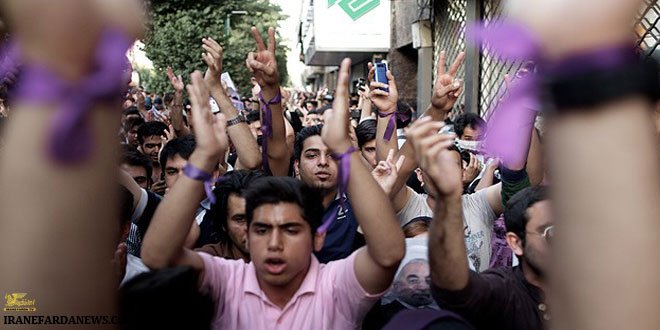
By Majid Sadeghpour
The biggest massacre of political prisoners since World War II was carried out in Iran in 1988. The Iranian regime as a whole and many senior officials in power today were the perpetrators. The indiscriminate murder of 30,000 prisoners of conscience was ordered by the regime’s then-supreme leader Khomeini and carried out by members of “death commissions” set up around the county.
Many of these prisoners had already completed their sentences but were executed without fair trials in 1988 simply for their beliefs and support for the main opposition group Mujahedin-e Khalq (MEK). The victims included men, women and even teenagers. Some of the women were pregnant at the time of execution, according to the regime’s second highest official at the time, Ayatollah Hossein-Ali Montazeri.
A newly released audio tape by members of Montazeri’s family implicates the key orchestrators of the 1988 mass murders. Some of them are the same officials with whom the West negotiated the nuclear deal.
Last month, the House Homeland Security Committee Chairman Michael McCaul (R-Texas) introduced an important resolution “Condemning the Government of the Islamic Republic of Iran for the 1988 massacre of political prisoners and calling for justice for the victims.” Foreign Affairs Committee Chairman Ed Royce (R-Calif.) and Ranking Member Eliot Engel (D-N.Y.), plus a dozen more bipartisan members cosponsored H.Res. 159.
The Resolution “Urges the Administration and United States allies to publicly condemn the massacre, and pressure the Government of Iran to provide detailed information to the families of the victims about their loved ones and their final resting places.”
In August, Montazeri’s son, who is a religious figure in his own right, released an important audio tape of his father’s meeting with senior regime officials that had remained sealed for over two decades.
“In my opinion, the greatest crime committed during the Islamic Republic, for which history will condemn us, has been committed by you,” Montazeri, the regime’s no. 2 official at the time, is recorded telling a group of judicial and intelligence officials. They included Mostafa Pourmohammadi, who today is Hassan Rouhani’s justice minister.
The current head of Iran’s Supreme Disciplinary Court for Judges was a member of the death commission, as was the head of one of the most powerful and influential state conglomerates. Four members of the State Expediency Council, six members of the Assembly of Experts, and twelve of the highest ranking judiciary officials along with many others including military officials have been identified as members of these “death commissions.”
The perpetrators’ disposition and seniority in Iran’s current regime truly represents an affront to humanity and in many ways would be akin to a bizarre scenario whereby Nazi officials are promoted to key positions in today’s Germany – an unthinkable scenario.
Such brazen promotion of extremism and disregard to humanitarian laws necessitates an appropriate reaction by the international community, a reaction against the world’s leading state executioner.
The leader of the main Iranian opposition, Maryam Rajavi, said it well. “Standing up to the violations of human rights in Iran is also the responsibility of Western governments because its consequences do not remain within Iran. The terrorism and fundamentalism emanating from it have been hurting defenseless people in Nice, Paris, and Brussels.”
France’s former Foreign Minister Bernard Kouchner recently said, “The massacres did not take place only in 1988. Iran continues to have the highest execution rate per capita. The executions have even increased after the nuclear deal.”
In short, the mass murderers of 1988 are still murdering today, but the global community has responded with indifference.
This is a watershed moment for those who yearn for democracy because the 1988 mass execution in Iran gives the clearest example of unabated brutality in modern human history. Its connection to current policies is also visible.
Western negligence will only encourage further domestic suffering for Iranians and more of the regime’s unbridled terrorism in the region and around the world.
That is why House Resolution 159 “urges the United Nations Special Rapporteur on the human rights situation in Iran and the United Nations Human Rights Council to create a Commission of Inquiry to fully investigate the massacre and to gather evidence and identify the names and roles of specific perpetrators with a view towards bringing them to justice.”
With the possibility of a more prudent foreign policy by the next US president and a purposeful European pushback against Islamic extremism, the prospect of support for real change in Iran is growing.
Such democratic change requires public expression of support for the Iranian people and their organized resistance by the international community and especially Washington.
Dr. Sadeghpour is the political director of the Organization of Iranian American Communities – US
 khalijefars News, Blogs, Art and Community
khalijefars News, Blogs, Art and Community








